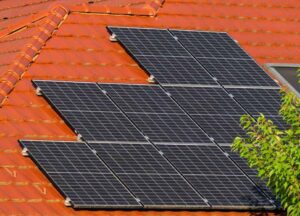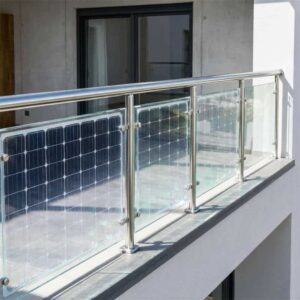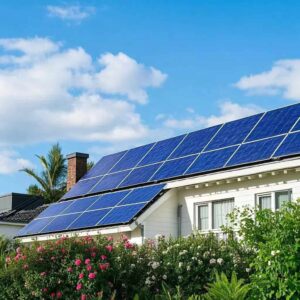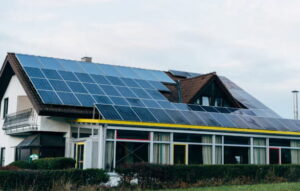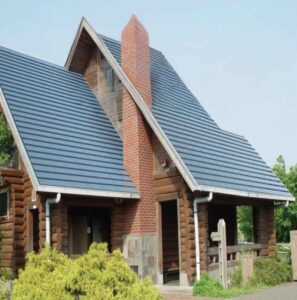Thinking about using solar power? You may ask if buying cheap solar modules is a good idea. Many people want to save money with a low solar photovoltaic module price. Solar panels now cost 70% less than ten years ago. Here are some common worries:
| Concern | Descripción |
|---|---|
| Lower efficiency | Cheap solar panels usually work at 18–21% efficiency. Premium panels work at 20-23%. |
| Short lifespan | These panels may last only 10–25 years. They wear out faster than better panels. |
| Lower-quality materials | They often use weaker materials. This means you may need to replace them more often. They may not work as well overall. |
You save money at first, but you may lose value or reliability later. Think about what is most important to you. Do you want to save money now or have your system last longer?
Principales conclusiones
- Cheap solar modules cost less at first, so more people can buy them. This helps people with less money use solar energy.
- Cheap panels do not work as well. You might need more panels to make the same power. This can make you spend more money later.
- Cheap panels do not last as long. They also have short warranties. You may need to fix or replace them more often. This can make you pay more in the end.
- Look for local incentives and tax credits. These can help you save more money when you buy solar panels, no matter which kind you choose.
- Think about all the costs, like putting in and taking care of the panels. This will help you pick the best solar panels for you.
Quick Answer
Are you wondering if cheap solar modules are worth it? Let’s break it down so you can decide quickly.
Main Pros
- Save Money Upfront: You pay less when you buy cheap solar panels. This helps if you want to start using solar power without spending a lot.
- Easy to Access: Lower prices mean more people can afford solar energy. You can get started even if you have a tight budget.
- Faster Payback: Because you spend less at first, you might see your investment pay off sooner.
Consejo: If you want to test solar power before making a big commitment, cheap panels can be a good way to start.
Main Cons
Here’s what you need to watch out for with budget solar modules:
- Lower efficiency means you get less electricity from the same amount of sunlight.
- Shorter lifespan because cheaper materials wear out faster.
- Limited warranty and support can leave you with extra costs if something breaks.
- Inconsistent energy production, especially during cloudy or rainy days.
- Panels may degrade early, so you might need to replace them sooner.
| Cons of Cheap Solar Modules | What It Means for You |
|---|---|
| Lower Efficiency | Less power, higher bills |
| Shorter Lifespan | More frequent replacements |
| Limited Warranty and Support | Higher risk, more out-of-pocket costs |
| Inconsistent Energy Production | Unreliable power during bad weather |
| Early Degradation | Panels lose strength over time |
If you want solar panels that last longer and work better, you may need to spend more. Cheap modules can save you money now, but they often cost more in the long run.
Benefits
Lower Upfront Cost
Many people want to save money when buying solar panels. The solar photovoltaic module price is a big reason why people choose cheaper panels. You pay less at first, so you can start your solar system without spending a lot.
Here is a price comparison:
| Factor | Budget Panels | Premium Panels |
|---|---|---|
| Price per Watt | $2.36-$2.89 | $3.00+ |
If you buy budget panels, you spend less for each watt. This lower solar photovoltaic module price helps you keep more money. You may get your money back faster and start saving on bills sooner. Many people like this because it makes solar power possible for those with less money.
💡 Tip: If you want to try solar energy or need a quick fix, picking panels with a lower solar photovoltaic module price can be smart.
Accessibility
Cheaper solar panels make it easier for everyone to use solar energy. You do not need a lot of money to begin. The lower solar photovoltaic module price lets more families and small businesses try solar.
Government help and programs also save you money. Here are some ways these programs help:
- Tax credits and rebates cut your costs.
- Grants and rewards give you extra savings.
- Incentives can make your payback time shorter.
- Lower starting costs mean you save money faster.
You can use these programs to make your solar project cheaper. When you mix a low solar photovoltaic module price with incentives, you get a system that fits your budget and starts working for you quickly.
Drawbacks
Faster Degradation
Cheap solar modules often wear out much faster than premium ones. You might notice your panels losing power after just a few years. Low-quality panels degrade at a higher rate, so you get less electricity over time. Premium modules usually last longer and keep their efficiency better.
- Cheap panels break down faster.
- Premium panels stay strong for more years.
- You may need to replace cheap panels sooner.
You could face problems like cracks, browning, or even burned solder joints. Here are some common issues with cheap solar modules:
- Breakage
- Delamination from heat or humidity
- Hot spots from manufacturing defects
- Microcracks from poor handling
- Bad bypass diodes
- Current loss due to shorts
🚨 If you want your solar system to last, faster degradation can mean more repairs and replacements.
Lower Efficiency
When you buy cheap solar panels, you get less power from the same amount of sunlight. Premium panels reach up to 22% or more efficiency, while budget panels often stay below 20%. That means you need more panels to get the same energy.
| Panel | Maximum Efficiency | Garantía |
|---|---|---|
| SunPower M series | Up to 22.3% | 25 years |
| REC Alpha Pure RX | Up to 22.6% | 25 years |
| Q Cells Q.Tron BLK M G2+ | Up to 22.5% | 25 years |
| Mission Solar N type | 22.8% | 30 years |
| Canadian Solar HiDM | Up to 20.4% | 15 years |
💡 Lower efficiency means you need more roof space and might pay higher installation costs.
Shorter Warranty
Warranty matters when you invest in solar. Cheap modules usually come with shorter warranties, sometimes only 10 to 15 years. Premium brands offer 20 to 30 years, giving you peace of mind for a longer time.
| Brand Type | Warranty Period |
|---|---|
| Cheap Modules | 10 to 15 years |
| Premium Brands | 20 to 25 years |
Shorter warranties mean you pay for repairs or replacements sooner. Premium brands also have lower warranty claim rates, so you deal with fewer problems.
🛠️ A longer warranty can save you money and stress down the road. Cheaper panels may cost less now, but you could pay more later if something goes wrong.
Cost Comparison
Solar Photovoltaic Module Price
When you shop for solar panels, you see the price first. The solar photovoltaic module price changes based on where you buy and what kind you pick. If you want the lowest price, panels from China cost about 10.1 cents for each watt. In the U.S., the average price is 33.7 cents per watt. Experts think prices in 2025 will be about $0.085 per watt. Most deals will be between $0.082 and $0.090 per watt.
Here’s a quick price list:
- Panels from China: 10.1 cents per watt
- Panels in the U.S.: 33.7 cents per watt
- Expected price for 2025: $0.085 per watt
Cheap panels mean you pay less at first. You can start your solar project without spending much. Premium panels cost more money. They give you better efficiency and longer warranties.
Total Cost of Ownership
The solar photovoltaic module price is only the start. You also need to think about installation, maintenance, and how long the panels last. Monocrystalline panels cost more to install. They work better and have longer warranties. Polycrystalline panels are cheaper but make less power. Thin-film panels are light and easy to put up, so you save on labor.
Here’s a simple table to compare:
| Panel Type | Module Price | Installation Cost | Eficacia | Garantía |
|---|---|---|---|---|
| Cheap Polycrystalline | Bajo | Bajo | Baja | 10-15 years |
| Premium Monocrystalline | Alta | Alta | Más alto | 20-30 years |
| Thin-Film | Lowest | Lowest | Lowest | 10-15 years |
If you pick cheap panels, you pay less now. You might spend more later on repairs and replacements. Premium panels cost more at first. They last longer and work better. When you add up everything—solar photovoltaic module price, installation, and future costs—you see that paying more at the start can save you money later.
💡 Tip: Always check the total cost, not just the solar photovoltaic module price. A deal that looks good now might cost you more later.
Decision Checklist
What to Ask
Before you buy cheap solar modules, ask some key questions. These questions help you avoid problems and get the best value.
- How long has the supplier been around? Older companies are more likely to keep their promises.
- Does the supplier have an escrow account for warranty claims? This helps protect you if the company closes.
- What tests show the panel’s durability? Don’t just trust IEC qualification tests. Ask for real-world results.
- Can you read the contract before signing? Always check the contract so you know what you’re getting.
- Are you able to get tax credits or local incentives? Talk to a tax expert to make sure.
- What is the warranty period? Compare it with other brands.
- How does the panel handle tough weather? Check if it can stand up to heat, cold, wind, and moisture.
Here’s a quick look at how different things can affect solar module reliability:
| Environmental Stressors | Impact on Module Reliability |
|---|---|
| Rapid thermal cycling | Can cause cracks from expansion |
| Extreme temperatures | May warp or discolor materials |
| Mechanical loading | Can lead to failures from wind or snow |
| Moisture infiltration | Can corrode wires and cause contamination |
💡 Tip: Ask for past performance data from the manufacturer. Brands like BP Solar and studies from Sandia National Labs show some panels last longer than others.
Good Deal vs Red Flags
You want a good deal, not a problem. Here’s how you can tell the difference:
Signs of a Good Deal:
- You get to see all contract papers before signing.
- The installer explains tax credits and local incentives.
- You get several quotes to compare prices and warranties.
- The company has a clear, long warranty and a good reputation.
- The installer answers your questions about net metering and maintenance.
Red Flags to Watch Out For:
- Ads say solar panels are free. Most people do not qualify for these deals.
- Salespeople say “special programs end soon” to rush you.
- Someone pretends to be from your utility company. Always check their ID.
- The contract has an arbitration clause that limits your legal rights.
- You see “teaser rates” that look low but go up later.
🚩 If something feels wrong or too good to be true, slow down. Ask more questions and look at other choices. Being careful now can save you trouble later.
Long-Term Impact
Maintenance Costs
When you choose cheap solar modules, you might save money at first. Over time, you could end up spending more on repairs and upkeep. Budget panels often break down faster and lose efficiency. You may need to call a technician more often. Premium modules usually last longer and need less maintenance. They use better materials and come with stronger warranties. Low-cost solar providers sometimes offer shorter warranty coverage. This can leave you with extra costs if something goes wrong.
- Cheap panels can lead to higher maintenance bills.
- Premium panels stay strong and keep costs low.
- Short warranties mean you pay for repairs yourself.
🛠️ If you want fewer headaches and lower bills, picking quality panels can make a big difference.
Home Value
Solar panels can boost your home’s value. Buyers like homes with solar because they save money on electricity. Studies show buyers may pay about $15,000 more for a home with solar panels. Homes with solar sell 4.1% faster, according to Zillow. The U.S. Department of Energy found that every $1 you save on utility bills can add $20 to your home’s value. In 2025, homes with solar are expected to sell for 6.9% more than those without.
The size of your solar system matters too. Bigger systems add more value. For every kilowatt (kW) you install, your home could sell for $3,000 to $4,500 more. A 5 kW system might boost your home’s value by $15,000 to $22,500.
- Solar panels attract buyers.
- Bigger systems mean higher value.
- Faster sales and better prices are possible.
💡 If you plan to sell your home, investing in solar can pay off.
Environmental Impact
Solar energy helps the planet. You use sunlight instead of fossil fuels. This means less pollution and fewer greenhouse gases. Cheap solar modules still help the environment, but they may not last as long. You might need to replace them sooner, which creates more waste. Premium panels last longer and work better. They reduce waste and keep your system running strong.
- Solar power cuts pollution.
- Longer-lasting panels mean less waste.
- Every solar panel helps fight climate change.
🌎 Choosing durable panels helps you protect the environment for years to come.
When you think about cheap solar modules, you see both savings and risks. You save money now, but you might pay more later. Experts say you should look at things like efficiency, warranty, and how well panels handle tough weather.
- Check the company’s stability and installer reviews.
- Look at the warranty and how fast panels lose power each year.
If you want the best value, balance cost, quality, and long-term reliability. Use the checklist and compare prices before you decide. Your choice today can save you money and stress tomorrow.
PREGUNTAS FRECUENTES
What happens if my cheap solar panels stop working early?
If your panels fail early, you may need to pay for repairs or replacements. Shorter warranties often mean less help from the company. Always check the warranty before you buy.
Can I mix cheap and premium solar panels on my roof?
You can mix them, but it is not always a good idea. Different panels may not work well together. You could lose efficiency or face wiring problems. Ask your installer for advice.
Do cheap solar modules need more cleaning or care?
Cheap panels may need more cleaning and checks. They can collect dirt or break down faster. Regular maintenance helps them last longer. Premium panels usually need less attention.
Will cheap solar panels lower my electricity bill as much as expensive ones?
Cheap panels can lower your bill, but not as much as premium panels. They often make less power. You might need more panels to get the same savings.
Are cheap solar modules safe for my home?
Most cheap panels meet safety rules, but quality can vary. Always buy from a trusted brand. Look for safety certifications and ask your installer about fire and weather ratings.

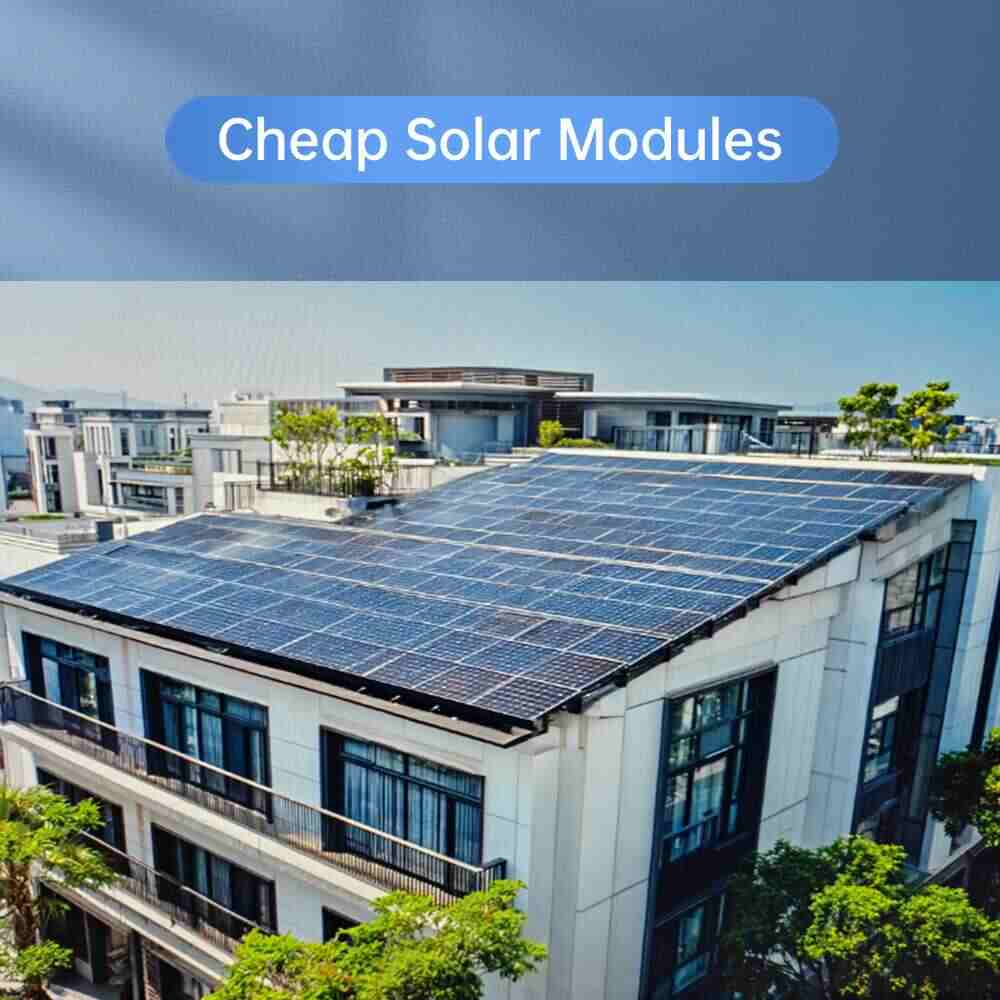
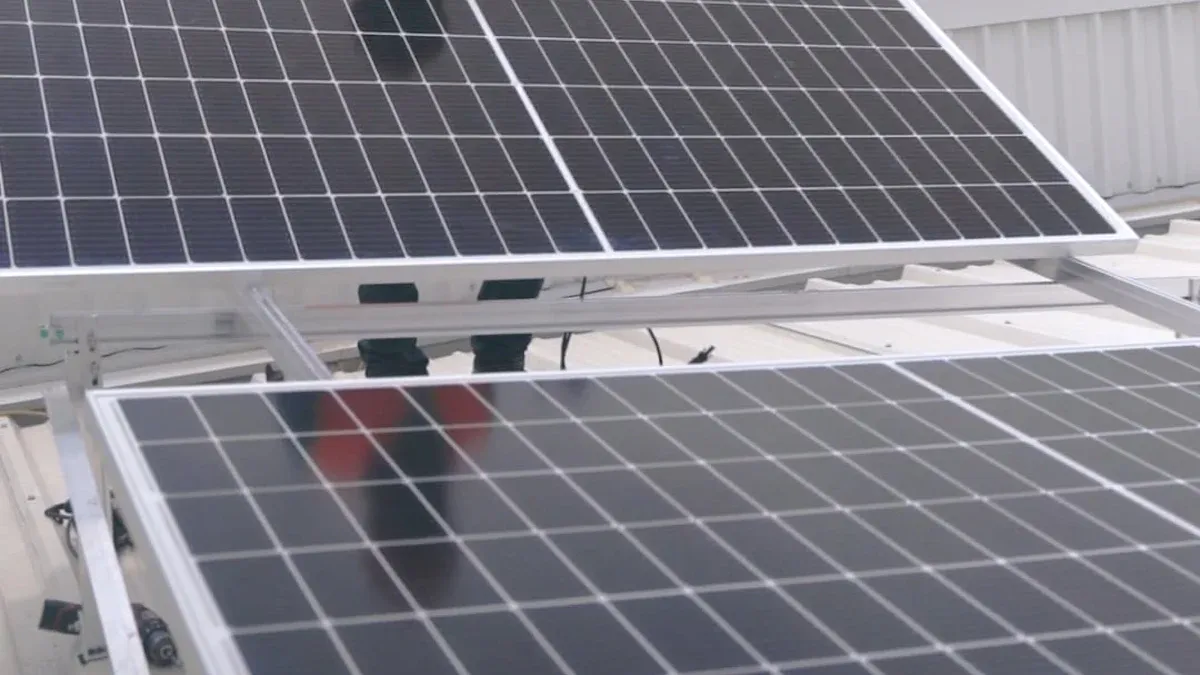
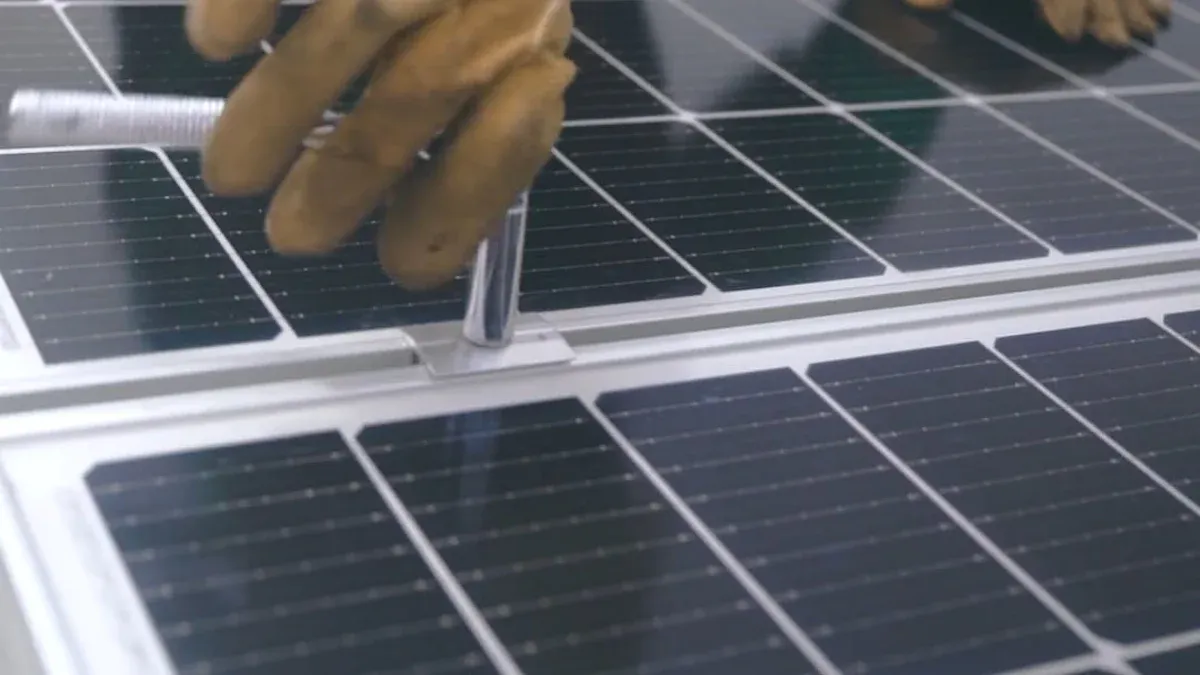
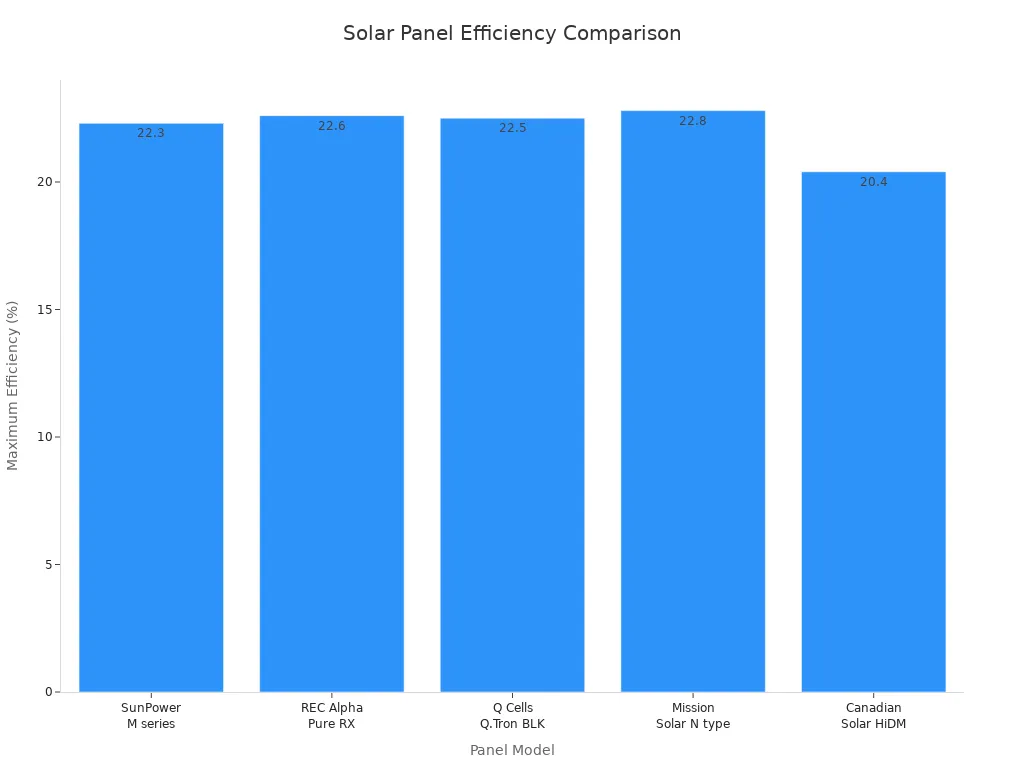


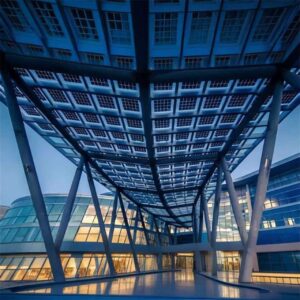

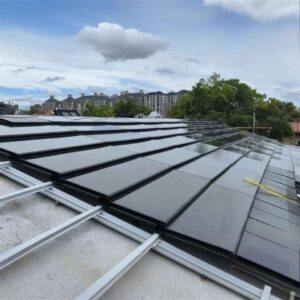
-300x300.jpg)
